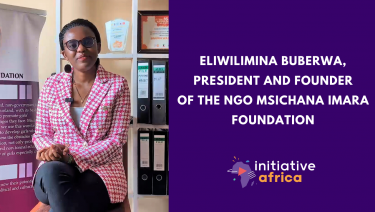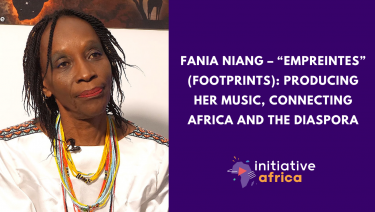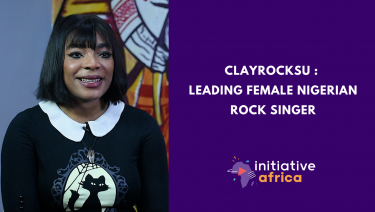Anti-poverty programs do not work

Sebastian Woller
Without management, economic aid programs are rarely successful in creating prosperity. In 1949 after two world wars, Western Europe’s manufacturing was a generation behind the United States. What raised European business out of the ashes was the Marshall Plan’s ‘Technical Assistance’ program.
Largely financed by the European governments themselves, Germany, Italy, France, and the UK sent thousands of handpicked businessmen to America. Organised in some 200 productivity teams, they were tasked to find useful techniques and to study the American success story. For several months, the Europeans toured automotive companies, business schools, textile mills, and so on in the United States.
In one way or another, each of these teams arrived at the same conclusions: American prosperity and achievements were not based on machines or the lack of wartime destruction, but rather on the social organization and moral values underlying its industry. In other words their management skills.
Africa needs a new managerial attitude
Indeed, the critical piece to creating prosperity and economic progress is competent management. It makes the wheels go round. Management creates employment, increases salaries, and improves productivity. It establishes large organizations and attracts the brightest minds. Without it, foreign aid or anti-poverty programs are as futile as measuring happiness by the American Dollar.
In the book “Moving Out of Poverty”, the authors explain why and how some people escape poverty in Africa, Asia, and Latin America. Based on discussions with over 60,000 people in rural areas, the project, sponsored by the World Bank, finds that fewer than 1% escaped poverty through aid programs. Instead, people who rose up the ladder from poverty to prosperity assigned their progress to jobs, new sources of income, and new businesses.
All are direct consequences of management thinking.
As good as the clarion calls from The United Nations sound, which asks richer nations to provide more aid to help poor countries fight poverty, they do not usher in the needed change of attitude to solve Africa’s challenges. Money by itself does not supply productivity. Good managers and leaders do. They create and design opportunities that lead to economic progress and help alleviate poverty.
Prosperity as a social principle
For now, more wealth leaves Africa than enters it. As research by Global Justice Now made clear in 2017, the majority of loans, aid and personal remittances sent to the continent are lost either directly, through multinationals moving money into tax havens, or indirectly by costs imposed by the developed world.
If but a small part of the West’s anti-poverty programs inspired responsible management, Africa would face a brighter future. Sending African productivity teams on field trips to the West is surely one way of increasing efficiency and labour productivity. An African “Technical Assistance” program could provide the continent with a clear view of the social principles that have helped bring prosperity to Europe and the Western World.
See also

Eliwilimina Buberwa, president and founder of the NGO Msichana Imara Foundation
In this interview, Initiative Africa speaks with Eliwilimina Buberwa, founder of the NGO Msichana Imara Foundation, which is dedicated to combating period poverty in Tanzania. Drawing on her own experience, she explains how the lack of information, products, and adequate infrastructure still deprives millions of young girls of their right to education. This is a crucial discussion on a public health, gender equality, and social justice issue at the heart of rural communities. Journalist: Alexandra Vépierre

Artificial intelligence in Africa: opportunities, challenges and innovations
Artificial intelligence is reshaping the global economy — and Africa is no exception. In Cameroon, the startup Comparo is helping small and medium-sized businesses stand out in the e-commerce space, thanks to accessible AI-driven tools that streamline web creation and customer targeting. But beyond the promise, AI raises serious concerns: data control, technological dependency, social divides… This report dives into the local innovations and global challenges shaping Africa’s digital transition.

Fania Niang – “Empreintes” (Footprints): producing her music, connecting Africa and the diaspora
With Empreintes, her fifth album, Fania Niang presents an intimate and socially engaged body of work, recorded in Dakar and self-produced for the first time in her career. In this interview, she reflects on her journey between Africa, Europe and the United States, the challenges of independent production, and the musical connection she built with Senegalese musicians who have transcended cultural boundaries. She also shares her perspective on today’s African music scene, the dialogue between diaspora artists and the continent, and her desire to give back by sharing knowledge, experience and creative vision. A powerful conversation about music as memory, identity and transmission. Journalist: Laurence Soustras

CLAYROCKSU, leading female Nigerian rock singer
She grew up singing in church and ended up fronting Nigeria’s rock scene. In this exclusive interview, Clayrocksu opens up about what it means to be a rock artist and a woman in a country dominated by Afrobeats. From her early days mixing Igbo and English lyrics, to building a community of Afro-rock musicians, she shares how music became a form of rebellion, healing, and identity. Between faith, family, and fire, her voice carries a message for all the misfits who refuse to fit in. Journalist: Sharafa